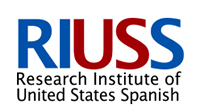United States Spanish: In Search of an Identity
For many years, we have heard of a distinct “Mexican Spanish,” “Argentine Spanish,” or “Colombian Spanish.” Our Spanish, that of the United States, has not been allowed to enter that club of nations whose Spanish has been recognized – and accepted – as different, not wrong, just different.
Spanish of the United States, however, has been regarded as a hybrid of lesser quality. Some people refer to our Spanish as “Spanglish,” not understanding that “Spanglish” is not a language but, rather, an oral mixing of two languages. And Spanish along our southern border with Mexico is disdained as “pocho,” also a blend of English and Spanish, but with Spanish grammar and vocabulary dominant.
Among the world’s 23 Spanish-speaking nations, the United States is the only one where Spanish is not the official or “first” language. United States Spanish lives in daily contact with English and is influenced by it. Our approximately 40 million Spanish-speakers, furthermore, hail from every Spanish-speaking country in the world, making us unique in many ways.
The lack of studies of the unique character of “our Spanish” in communications and information to the public has motivated a group of Spanish language experts to fill that gap. They announced in June of this year the creation of the Research Institute of United States Spanish (RIUSS). I am honored to have been elected President of the founding board of directors.
A 501 c (3) nonprofit membership organization, RIUSS incorporated in New York State and is located in New York City. Its mission is to “consolidate the linguistic Hispanic identity through research and encourage a dialogue on the fuller understanding of Spanish as it is used in the United States.” To achieve that mission, RIUSS will offer these services, among others:
- Usage research to be shared broadly via its website, symposia, conferences and other means
- Periodic webinars
- RIUSS surveys of speakers to determine reading comprehension
- Collaboration with and services to government and other entities that share our concerns
- Affordable memberships at various levels
A key area of concern is that of healthcare services to Spanish-speakers, often a matter of life and death. It is well-known that catastrophic inadequacies plague the provision of healthcare – from small children being asked to interpret for parents, to doctors who speak at a level not well understood by their patients, and prescriptions instructions that patients do not understand. RIUSS, consequently, will research, establish and promote the use of “plain language,” or “lenguaje claro”—that most Spanish-speakers can understand and apply.
Poor understanding of Spanish is closely related to less than acceptable outcomes in healthcare. And in in law enforcement, law-abiding citizens and residents are often caught up in situations in which language barriers produce unfortunate unintended consequences. These may entail unjustified detention, denial of Miranda rights, separation of families and more.
We often point to our appreciation of Spanish as a unifying factor for Hispanics. Whether we speak it well, or not at all, we recognize its symbolic importance to our identity. Something about the Spanish language helps it endure. Ladino, the 15th century Spanish of exiled Jews, persists in Istanbul, Buenos Aires and Mexico City – without renewal. Descendants of 15th century explorers in the American southwest retain forms of a language brought to our shores five centuries ago. We should be proud of that.
We at RIUSS are equally proud of having taken that essential step at long last to give United States Spanish the respect it deserves and to identify norms that can assist health care providers, government agencies, the private sector and others to communicate effectively in Spanish. For more information, visit www.RIUSS.org

Comments (2)
Dear RIUSS people,
I celebrate this initiative, which will surely contribute to a better understanding of how US Spanish is developing in an area where there is an increasing Spanish-speaking community having Spanish as a heritage language of second, third and/or fourth generation.
I think that one important point is the need to highlight the correct use of Spanish US-isms –as I name it in english– (estadounidismos), belonging to academic writing or oral standards to differentiate it from the informal / coloquial / family oral or writing code.
I’m deeply happy that Leticia is presiding such a wonderful project because I know about her professionalism and personal integrity. All the best for you all!
Your comment is awaiting moderation.
Dear RIUSS people,
I celebrate this initiative, which will surely contribute to a better understanding of how US Spanish is developing in an area where there is an increasing Spanish-speaking community having Spanish as a heritage language of second, third and/or fourth generation.
I think that one important point is the need to highlight the correct use of Spanish US-isms –as I name it in english– (estadounidismos), belonging to academic writing or oral standards to differentiate it from the informal / coloquial / family oral or writing code.
I’m deeply happy that Leticia is presiding such a wonderful project because I know about her professionalism and personal integrity. All the best for you all!